When the Pittsburgh Penguins made a three-way trade with the Ottawa Senators and Vegas Golden Knights on Feb. 23, 2018, a three-peat Stanley Cup victory looked within reach. The deal sent defenseman Ian Cole and goalie Filip Gustavsson to the Senators and right winger Ryan Reaves to the Golden Knights. In return, the Penguins received forward Vincent Dunn, winger Tobias Lindberg, and, the star of the deal, center Derick Brassard.
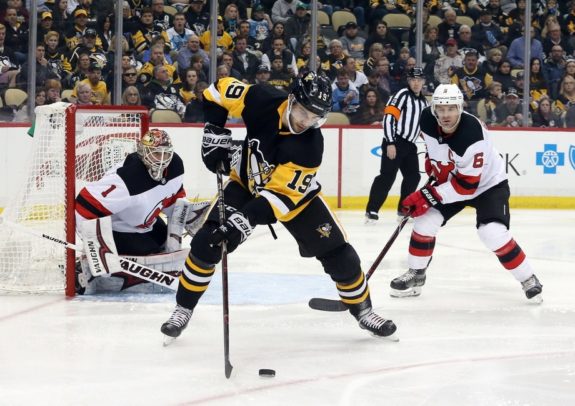
Even better, as Brassard passed through the Golden Knights organization, they agreed to retain 40 percent of his contract for two seasons, keeping the Penguins under the salary cap. General manager Jim Rutherford seemed to have pulled off a steal for another necessary playoff piece. Yet, by the beginning of May, Brassard and the Penguins were hitting the golf course and Reaves and the Golden Knights were on their way to their first Western Conference Final and Stanley Cup Final in franchise history.
Whether you blame it on bad luck or on an injury, Brassard is the nineteenth player to be cursed by the unlucky No. 19.
Derick Brassard
Brassard played just 14 games for the Penguins in 2017-18, going down with an undisclosed lower-body injury in March and missing the last five games of the regular season. He powered back for the playoffs, skating in all 12 games of the Penguins’ two-round run but, like some of his teammates, Brassard wasn’t 100 percent healthy. He told the Pittsburgh Post-Gazette’s, Sam Werner:
“I was dealing with some stuff… Maybe I came back a little too quick. I hurt myself before the playoffs, but I wanted to be there… It kind of came back a little bit after that in round two. I was just trying to kind of forget about that and push as hard as I can,” (from ‘Derick Brassard’s late-season injury didn’t do him any favors’, Pittsburgh Post-Gazette – 5/9/18).
Brassard hoped to prove his worth in training camp this year, but he contracted a lung infection that laid him up for the first five days of camp. He recovered in time to see some preseason action and start the regular season, but his comeback was short-lived. Brassard was scratched from the Oct. 27 matchup against the Vancouver Canucks due to an upper-body injury that he had reportedly been playing with for a few games. He was placed on injured reserve on Oct. 31. As of Nov. 5, a timetable for Brassard’s return has not been released.
Beau Bennett
The Penguins drafted right winger Beau Bennett in the first round of the 2010 NHL Entry Draft and he made his debut three seasons later in a 3-1 win against the Winnipeg Jets. Bennett’s first season – an abbreviated one thanks to a partial lockout – and his first taste of the playoffs in 2013 were promising. He scored his first career playoff goal in his first career playoff game on his first career playoff shot in a 5-0 blanking of the New York Islanders on May 1, 2013. He was the first Penguins rookie since Jordan Staal (2007) to score in his first playoff game.

Bennett’s shaky health hindered his chances of future success, however. He played 103 of 246 possible games the following three seasons, contributing a combined 13 goals and 31 points over that span. Among his ailments, Bennett suffered a broken wrist that required surgery to repair and he contracted the mumps during the great NHL mumps outbreak of 2014.
On June 12, 2016, Bennett got to hoist the Stanley Cup for the first time after the Penguins defeated the San Jose Sharks in Bennett’s home state of California. Though, to add insult to illness and injury, Bennett’s name was not engraved on the Cup because he did not meet the requirements of playing 41 regular season games or dressing for one Stanley Cup Final game. That summer, he was traded to the New Jersey Devils in exchange for a third-round draft pick.
Mike Comrie
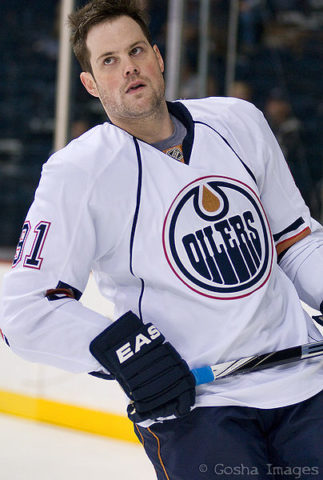
After signing with the Penguins for the league minimum $500,000 on Sept. 3, 2010, Mike Comrie hit the ground running. He scored the first ever goal inside the new CONSOL Energy Center, now PPG Paints Arena, in a preseason matchup against the Detroit Red Wings and impressed sportswriters and his newest set of fans by scoring four goals in four preseason games.
Comrie’s hot streak didn’t extend into the regular season. He played just 21 games, missing the majority of the season due to a persistent hip injury. He contributed six points during his one-year stint with the club, with his only goal of the season and only regular-season goal as a Penguin scored on an empty net in the team’s final game of the year against the Atlanta Thrashers.
Comrie underwent another hip surgery in the offseason and officially retired from hockey on Feb. 13, 2012.
Ryan Whitney
Drafted fifth overall by Pittsburgh in 2002, Ryan Whitney made his NHL debut in the 2005-06 season, following the lockout. He was called up from Wilkes-Barre/Scranton to replace injured defenseman Dick Tarnstrom in October and stayed with the club through the end of the season. Interestingly, Whitney first wore No. 6 for the Penguins, switching to the unlucky No. 19 sometime during his first season.
Whitney’s second season with the Penguins was arguably the best of his career. He played 81 games, hit highs for goals (14), assists (45) and points (59), finished thirteenth in voting for the Norris Trophy, and participated in the NHL’s YoungStars game during All-Star Weekend.
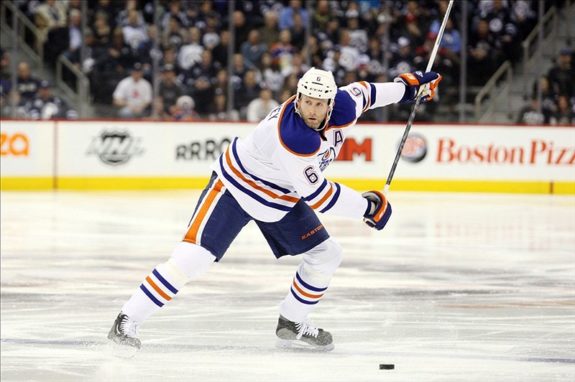
Following his career year, Whitney signed a six-year, $24 million contract with the Penguins to ensure his future with a young, up-and-coming team. While the team thrived in 2007-08, making it to their first Stanley Cup Final since 1991-92, Whitney’s performance dropped off due to injury.
Whitney had been playing through pain during the 2007-08 season and had surgery in the offseason to realign the bones in his left foot. He missed the start of the 2008-09 season, returning in December. He played 28 games with the Penguins that season before being traded to Anaheim in February for Chris Kunitz and Eric Tangradi. The Penguins went on to claim their third franchise Stanley Cup that year, while the Ducks were eliminated by the Red Wings in the second round of the playoffs.
The Others
While the players above best showcase the ccurse of wearing No. 19, there are other players who weren’t plagued by injury or poor performance, but still never saw much production or fame while wearing the jersey. Some, like Grant Sasser (1983-84), Arto Javananien (1984-85), (2002-03), Ramzi Abid (2002-04), and Jason Williams (2011-12) couldn’t even get started wearing that number. These five players combined for a total of 39 games – less than half a regular season – during their times with the Penguins.
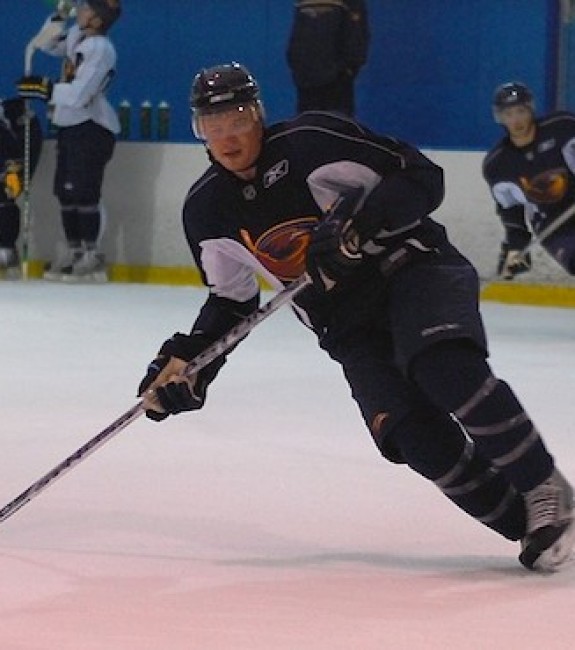
Others, including Abid, Rick MacLeish (1981-83), Dave McLlwain (1988-89; 1995-96), Randy Gilhen (1989-91), and Rico Fata (2002-04; 2005-06) tried to reverse the curse by changing their numbers. Some, like Whitney, might have cursed themselves by switching from their old numbers to No. 19 for various reasons.
Finally, players like Bob Rivard (1967-68), Dale Tallon (1978-80), Greg Sheppard (1978-82), and Willy Lindstrom (1985-87) have been somewhat forgotten from Penguins history because they did not win any Cups, did not set any franchise records, nor did they gain infamous reputations for being physically fragile or for underwhelming performances. Being forgotten, in a sense, is a curse in itself.
Reverse the Curse
Two players in Penguins history defied the odds of wearing the dreaded No. 19: Jean Pronovost and Bryan Trottier.
Pronovost played for the Penguins for 10 seasons, from 1968 to 1978. He was part of the Penguins’ famed “Century Line” with Syl Apps and Lowell MacDonald. During his time with the team, Pronovost joined the 100-point club, led the team in scoring five times and in points twice, played in four NHL All-Star Games, and was the first member of the club to score 50 goals in a season. He was named to the Penguins’ Hall of Fame in 1992 and to the Trib Total Media All-Time Team in 2010.
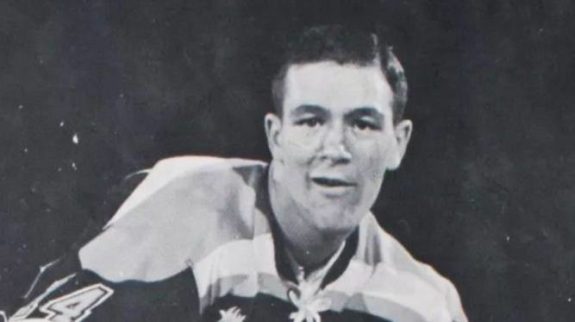
Trottier signed as a free agent with the Penguins before the 1990-91 season. He collected his fifth and sixth career Stanley Cups with the team in 1990-91 and 1991-92 and became a local cult hero when he took the Cup for a slip-n-slide ride down the field at Three Rivers Stadium during the team’s victory celebration. He received the Penguins’ Edward J. DeBartolo Award for community service with Ron Francis in the 1994-95 season. He served as the team’s assistant coach for three seasons and was inducted into the Hockey Hall of Fame in 1997, the first year he was eligible for induction.